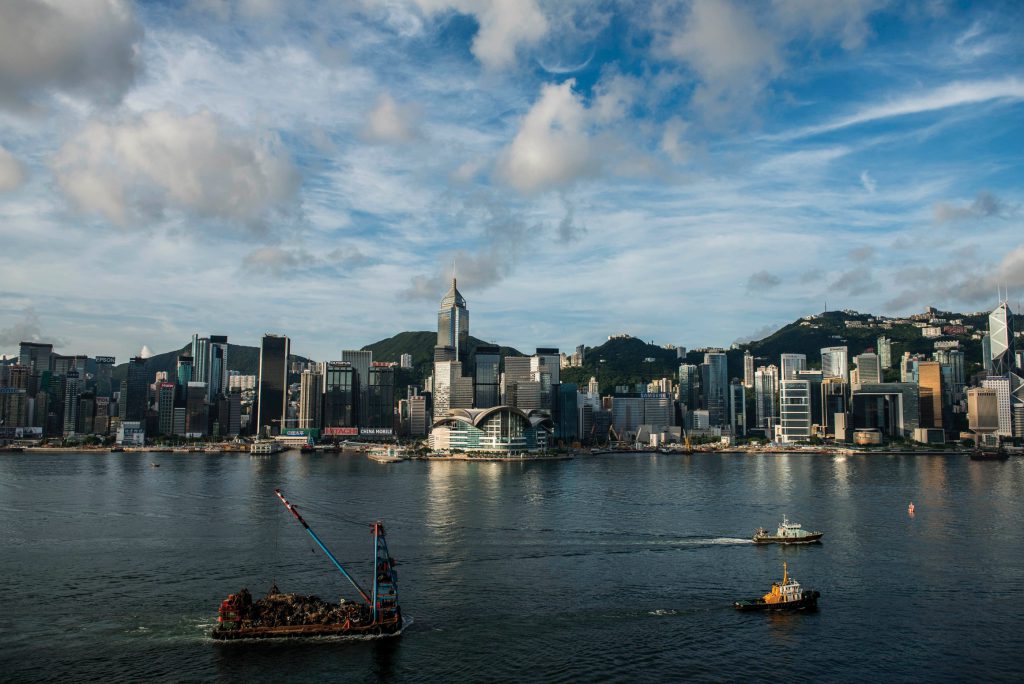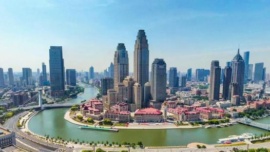The idea of “common prosperity” as discussed in the Tenth meeting of the Central Committee for Financial and Economic Affairs chaired by Xi Jinping, the General Secretary of the Communist Party of China (CPC), on August 17 has triggered immediate studies, discussion and debate over its meaning, implementation and implications for not only the People’s Republic of China (PRC) but also Hong Kong and, perhaps to a lesser extent, Macau.
During the meeting, President Xi emphasized that “common prosperity is the nature and request of socialism,” that it is the important feature of Chinese-style modernization, that it insists the developmental idea of using people as the focus, and that it is the process of promotion in high-quality development. In fact, the CPC during its 19thFifth Plenum in October 2020 had already planned for the PRC’s strategic development toward “common prosperity,” while the 14th Five-year Plan and the 2035 vision had simultaneously mentioned the importance of achieving common prosperity in the year 2035.
Many people in Hong Kong and Macau do not really understand the meaning and implications of common prosperity.
First and foremost, believing in Karl Marx’s ideal of common prosperity in a socialist society where equality and social justice would be achieved, the late Chinese leader Deng Xiaoping did talk about common prosperity as a distant objective of Chinese socialism. As early as March 1985, Deng said that socialism aimed at achieving common prosperity rather than bringing about the extreme situation of social polarization. As China has been developing its economy and society rapidly since the mid-1970s and especially since the early 2000s, it is a matter of time that PRC leaders reiterate the ideal of achieving common prosperity for all, especially as the gap between the rich and the poor in the mainland has been continuously widening.
Second, the concept of common prosperity does not refer to any tendency of achieving “common poverty,” as some people in Hong Kong and one mainland economist have totally and publicly misinterpreted. An article written by Yu Jianxing and Ren Jie, “The Implementation Agenda of Common Prosperity,” have clarified that common prosperity is by no means equivalent to a process of “equalizing the rich and the poor without any distinction (CPC news, August 19, 2021).” Yu and Ren have pointed to the discussion of the Finance and Economy Committee on August 17, when PRC leaders said that the idea of common prosperity is to enrich the spiritual and material life of the masses, that it is not the phenomenon of just letting very few people to get rich, and that it is not “standardized egalitarianism.” According to Yu and Ren, the idea of common prosperity must be implemented in stages.

Unfortunately, some Hong Kong people and critics of the concept of common prosperity have misunderstood the concept and mistakenly equated it with “communism.” Communism is different from socialism; the former would be a utopian society without class and without the state, according to Marx. Socialism is a far more realistic vision at which the mainland society is aiming.
Third, Yu and Ren caution us that the idea of common prosperity is to create a unique Chinese society, unlike Northern European states where high tax and high social welfare are their governing characteristics. Yu and Ren argue that the Northern European model is unsuitable for the PRC, where common prosperity is ideally characterized by (1) an increase in total economic output, (2) the enhancement of the middle-income sector, (3) the coordinated development of socio-cultural and ecological aspects, and (4) the persistent consolidation of the foundation of the ruling CPC. Arguably, the idea of common prosperity can be regarded as a means to an end, namely strengthening the legitimacy and achieving the longevity of the CPC.
Fourth, Yu and Ren contend that common sharing is a hallmark of common prosperity, meaning that the Chinese society should improve social welfare protection in its superstructure, and providing the opportunities for the people to share the fruits of success in economic and social development. This means that social mobility is kept open for the people from the lower classes, thereby creating a “participatory” and stable society.
In Marxist terminology, common prosperity contains concrete policies that bring about spiritual development in the superstructure, while simultaneously leading to the continuous expansion of productive forces in the economic base.
Fifth, the ideal of common prosperity refers to the need for the society to achieve sustainable development. The concept of sustainability is intergenerational, embracing the mutual coordination between population, resources and the environment. Yu and Ren have cautioned that sustainable development does not simply rely on tax burden imposed on the individuals. Nor does it mean that social policies proliferate and become “excessive.” In other words, moderation and policy balance are the key features of achieving common prosperity.
Sixth, Yu and Ren maintain that, in the process of high-quality development, China would become an innovative, coordinative, green, open and sharing society where industrial competitiveness will be enhanced, economic circulation will be improved, low-income groups will have their living standards elevated, and the gap between rural and urban areas will be narrowed.
The implications for enterprises are that, firstly, enterprises with lower development and low added value must learn from profitable and successful enterprises, and secondly, the profitable organizations partner with the government to assist the weaker industries through the transfer of the experiences in governing capability, management, skills, technology, talents and information.
Similarly, the social protection structure needs to assist and subsidize the rural poor and the needy in the areas of pensions, insurance, health care, educational support, unemployment benefits, social welfare fund and the provision of loans. The role of government is interventionist, but it cooperates with agricultural households and monetary agencies to support the poor and the needy. The ideal governance is characterized by a triangular collaboration between the market, social groups and individuals in tackling the problem of poverty in China.
If the people of Hong Kong and Macau, especially the governing elites and many businesspeople, really understand the idea of achieving common prosperity in an accurate manner, then the implications for the governance of the Hong Kong Special Administrative Region (HKSAR) and the Macau Special Administrative Region (MSAR) are positive rather than negative.

First and foremost, given that the MSAR has a far more effectively interventionist government than the HKSAR, where some of the post-1997 ruling authorities have outdatedly harped on the same theme of “positive non-interventionism,” the idea of common prosperity means that governance in the two cities can bring about a win-win situation. The people’s livelihood can and will be improved in general; the legitimacy of the government can and will be enhanced; the poverty issue can and will be ameliorated; and sustainable development can and will be achieved.
Second, the challenge of governance is how to achieve common prosperity in Hong Kong and Macau. Some people in Hong Kong have got used to having an economy with relatively low tax; any tax increase is seen as economically negative. Nevertheless, should the tax system in Hong Kong be reviewed in a more positive way with the ultimate objective of achieving common prosperity and yet without really undermining the self-interests of the rich people?
Curiously, the ruling authorities in Hong Kong have often shied away from the issue of tax reform. Tax reform can be moderate and feasible. Should tax levy be increased in the buying of vehicles and other luxurious goods? Should big companies enhance their sense of corporate social responsibility through donations (like money and even land) made to the society, including charity and sports development? Should big conglomerates in both Hong Kong and Macau, like Alibaba which plans to invest in 100 billion yuan before 2025 to the development fund of common prosperity, do something more assertively to contribute back to the society?
Although Covid-19 and its variants are still haunting the world and the societies of Hong Kong and Macau, should the two societies initiate such discussions later, especially as the Chief Executive election will be held in Hong Kong in March 2022 and as Macau’s casino franchise renewal will be discussed later? If common prosperity is not aimed at achieving “common poverty,” as critics have mistakenly argued, then there should be no qualms in discussing how common prosperity in Hong Kong and Macan can be and will be achieved.
Third, the ideology of capitalism in Hong Kong is at odds with the ideology of socialism in its motherland; nevertheless, capitalism in the HKSAR has its exploitative aspects that, according to the ideal of common prosperity, should really be tackled from a positive perspective. Take the example of sub-divided units in which many poor people are residing. Recently, the government has introduced rent control after many years of tolerating the persistence of exploitative capitalism. However, critics have said that rent control remains minimal and protective of the interests of the landlords rather than the tenants. Most importantly, should sub-divided units in the HKSAR be eliminated much earlier before 2047, rather than 2049 as previously stated by the Financial Secretary?
Macau’s governing ideology represents a blend of casino capitalism and social welfare protection, meaning that its relatively small society has the potential of achieving common prosperity at a scope easier and a rate faster than Hong Kong. Yet, if Macau is increasingly socially and economically integrated into the Greater Bay Area, how to control and regulate immigration from the mainland will likely be an important issue shaping the extent of common prosperity. Moreover, Macau really needs to diversify its economy at a much faster rate so that its affluence will not depend excessively on the casino industry.
In conclusion, the idea of achieving common prosperity is an ideological and a practical pillar of socialism in mainland China with immediate implications for the governance of Hong Kong and Macau. Unlike Macau’s mix of casino capitalism and welfare socialism, Hong Kong remains a capitalistic society characterized by the unbalanced features of not only a tax system biased in favor of the rich and the powerful, but also a high land price policy making the lower classes continuously suffer from high rental and housing prices. The ruling elites in the HKSAR have been got used to a very outdated ideology of “positive non-interventionism” without realizing that interventionism is the key to good governance. Since the idea of common prosperity demands the government concerned to intervene in the key areas of the society and economy effectively, it is time for the local governments and ruling elites of Hong Kong and, to a lesser extent, Macau, to ponder seriously how they can and will bring their societies to the path of sharing common prosperity. After all, achieving common prosperity will strengthen the legitimacy, governance and popularity of the governments of Hong Kong and Macau.





















